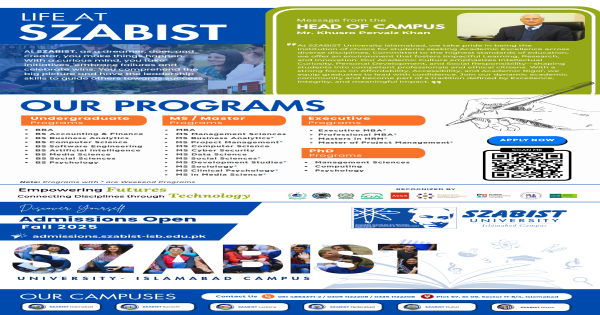It’s one of the most painful experiences for any student: after burning the midnight oil, sacrificing sleep, and spending hours revising, they still open their results only to see disappointing grades. The question lingers painfully—“Why did I fail when I studied so hard?”
If you're a student who’s ever faced this situation, know that you're not alone. Countless students give their best, only to fall short. It doesn’t mean you’re not smart or not capable. Often, the problem lies not in how much you study, but in how you study. This article aims to dive deep into the real reasons behind such failures and provide practical solutions to help you bounce back stronger.
The Emotional Struggle Behind Failure
Before diving into the technical reasons, let’s talk about the emotional side. When a student fails despite effort, it can break confidence. Doubts creep in—"Maybe I'm not cut out for this," or "No matter what I do, I fail." This emotional weight can be heavier than the academic burden.
But here’s the truth: failure is not the final verdict. It’s feedback. It’s the mind and body’s way of saying, “Something needs to change.” Once you understand the psychological patterns behind this issue, you can turn things around. Let’s explore what might be going wrong.
Psychological Reasons Students Fail Despite Studying
Studying isn't just about opening books and highlighting notes. It involves mental discipline, emotional balance, and effective techniques. Many students fall into traps that affect their performance without even realizing it.
-
Poor Focus
In a world full of notifications, open tabs, and distractions, it's easy to sit with a book for hours without truly concentrating. Passive focus leads to passive learning. -
Anxiety and Exam Stress
High levels of stress block your ability to recall information, concentrate, and perform under pressure. Even with full preparation, anxiety can sabotage your performance. -
Passive Learning Habits
Reading, underlining, and re-reading may feel productive but they don’t help with retention. Passive learning does not train your brain to actively retrieve information. -
Procrastination
Delaying study sessions and leaving things for the last minute leads to shallow understanding. It creates a cycle of guilt, rushed revision, and weak exam performance. -
Mental Fatigue
Overstudying without proper breaks can exhaust your brain. Like muscles, the mind needs rest to function optimally. -
Lack of Strategy
Studying without a plan is like shooting arrows in the dark. You need a roadmap: what to study, when to revise, and how to assess your understanding.
Common Mistakes Students Make
Here are some frequent errors that lead to ineffective study outcomes:
- Cramming a day before exams
- Skipping regular revision
- Not practicing past papers or mock tests
- Studying with distractions (e.g., phone, TV)
- Lack of sleep before exams
- Ignoring difficult topics
- Using passive methods like re-reading or highlighting
- Not asking for help when confused
These mistakes are common, but fixable. Awareness is the first step to change.

Practical Tips to Study Smarter
To overcome these challenges, you don’t need to work harder—you need to work smarter. Here are research-backed techniques that can boost your study effectiveness:
- Active Recall: Instead of re-reading, quiz yourself on the material. Ask, “What did I just learn?” or explain the topic to someone else. This improves memory retention.
- Spaced Repetition: Don’t revise everything in one go. Instead, review content at increasing intervals (e.g., after 1 day, 3 days, 1 week). Apps like Anki can help.
- Pomodoro Technique: Study for 25 minutes, then take a 5-minute break. After four sessions, take a longer 15–30-minute break. This keeps your mind fresh and focused.
- Use Past Papers: Practice under exam conditions to build familiarity and reduce anxiety. It also helps identify weak areas.
- Mind Mapping & Diagrams: Use visual tools to simplify complex topics and make them easier to remember.
- Teach What You Learn: Explaining a topic to someone else forces you to clarify your understanding.
- Set Micro Goals: Instead of vague goals like “study chemistry,” set specific tasks like “review chemical bonding for 30 minutes.”
- Stay Organized: Use planners, to-do lists, or digital apps to keep track of study schedules and deadlines.
The Role of Mental Health and Positive Self-Talk
Academic performance isn’t just about books—it’s also about your mindset. A negative internal dialogue like “I’m not good enough” or “I always mess up” can drain motivation. Replace it with affirmations like:
- “I am capable of learning anything.”
- “Mistakes help me grow.”
- “I will focus on progress, not perfection.”
Also, don’t neglect your mental health. If you’re feeling overwhelmed, talk to someone—a friend, a mentor, a counselor. You are not weak for seeking help; you’re wise.
Regular exercise, a good sleep routine, balanced nutrition, and mindfulness techniques like meditation can do wonders for your brain’s ability to concentrate and retain information.
Take Small Steps, Stay Consistent
Success doesn’t come overnight. The key is consistency. Even small improvements—studying 30 minutes without distraction, completing a weekly revision, practicing one past paper—can snowball into massive results over time.
Remember, failure isn’t the opposite of success—it’s part of the journey. Many toppers once failed too. What sets them apart is how they responded to that failure.
So if you've failed despite trying, don’t give up. Reflect, adapt, and move forward with a smarter strategy. You have everything it takes to succeed—you just need to realign your path.
Final Words
Studying hard and still failing is heartbreaking—but it’s not the end. It’s a sign that you need to change your methods, not your goals. Understand your mistakes, adopt effective strategies, and above all, believe in yourself. Intelligence is not fixed; with the right mindset and approach, you
Top Contributors
Related Articles
SZABIST University Islamabad – A Premier Destination for Higher Education in Pakistan
- Ilmkidunya
- 03/Jul/2025











































